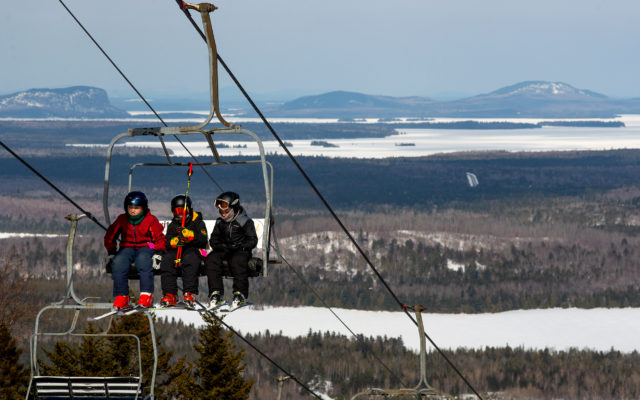
Judge orders Moosehead ski resort owner to restore lifts and trails 10 years after he closed it
By Judy Harrison, Bangor Daily News Staff
A Superior Court judge has ordered the owner of a ski resort overlooking Moosehead Lake to repair and restore the ski mountain, ski lifts and other resort property to the condition they were in before James Confalone of Florida purchased it from the state 25 years ago.
The ruling from Superior Court Justice William Stokes marked the end to a long legal saga that began in Augusta 2016 when the state filed a lawsuit alleging that the failure of Confalone and his company, Moosehead Mountain Resort Inc., “to invest, maintain, expand and operate the entire ski area and resort has had a devastating impact on the economy of Greenville and surrounding communities.”
Piscataquis County Commissioners intervened in the case in early 2019 in hopes of finding a way to revive the ski resort that once included a lodge and a motel as an “economic engine” for one of the state’s poorest counties, said their attorney, Severin Beliveau of Portland. He also said there is a potential buyer for the property who is interested in reviving the ski area as a tourist destination in the Moosehead Lake region.
Stokes also found that Confalone and his company illegally harvested timber from the property in 2010 and 2011 to pay interest on a $6.35 million loan. The judge ordered that Confalone pay more than $136,000 in damages to the state.
Stokes said he would hold a hearing next year to determine how much Canfalone owes the state in fines for the illegal timber harvest. Under Maine law, he could be fined up to $10,000 for each day loggers worked on the property known as Big Squaw Mountain. (The name of the mountain where the resort is located was changed years ago to Big Moose Mountain, but not the resort name. “Squaw” is a derogatory term for Native American women.)
The state owned the resort from 1974 to 1986. It passed through several owners before the 1,216-acre ski area was sold in 1995 to Confalone for $550,000 “with the explicit understanding that the purchaser would invest in and improve the ski area and resort, and maintain and operate it as an attractive and safe resort for the benefit of the people of Maine and the Greenville community,” according to the state’s legal complaint against Confalone.
Stokes agreed last week that Moosehead Mountain Resort had not fulfilled that requirement and had failed to perform basic maintenance and repairs on the resort’s hotel and base lodge, which led to their deterioration and closure in 2001. In 2004, the ski lift serving the 12 upper trails failed, injuring four people.
It has not been repaired or operated since then. Confalone closed the ski area in 2010 but three years later the not-for-profit Friends of Squaw Mountain, which is not a party to the lawsuit, leased the lower ski lift, trails and lodge from Confalone for $1 a year. The organization has cleared and groomed 15 trials, refurbished the lodge facility, repaired the lower lift so that it has passed inspection, and offered skiing and snowboarding lessons.
Information about if and when the ski area would open in light of the pandemic was not available Nov. 23 on its website or Facebook page.
Canfalone’s attorney, Elliott Teel of Portland, declined to comment on Stokes’ ruling but argued in his opposition to the state’s summary judgment motion that the language in the deed was too ambiguous to be enforced. He also argued that some of the things the state had demanded, such as the ski area being open to the public and improvements to trails and the lower lift, already were in place.
Attorney General Aaron Frey, whose office sued Canfalone, hoped the judge’s decision would allow improvements to be made at the resort.
“The upper mountain has been off limits since 2004, and the lower mountain is skiable only because of the hard work of dedicated volunteers,” he said. “We are pleased that the court recognized that the current owner has not complied with his obligations, and we are hopeful that the ruling will pave the way for making the resort once again an all-season destination for tourists and Mainers alike.”